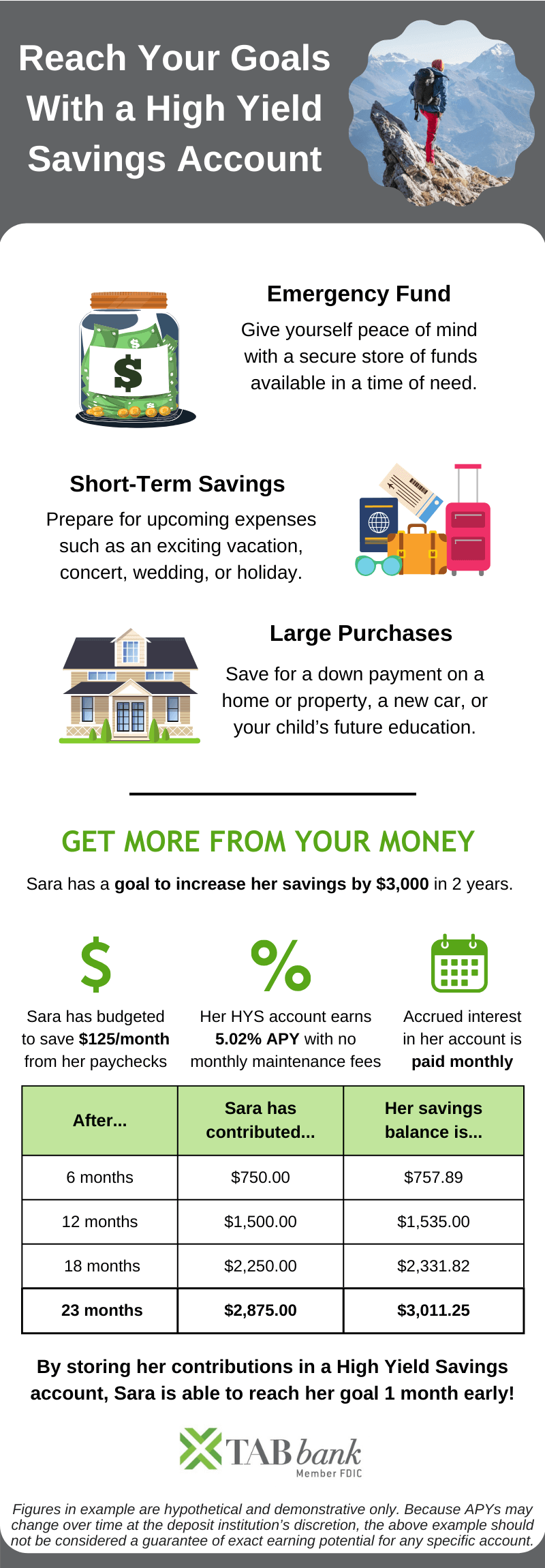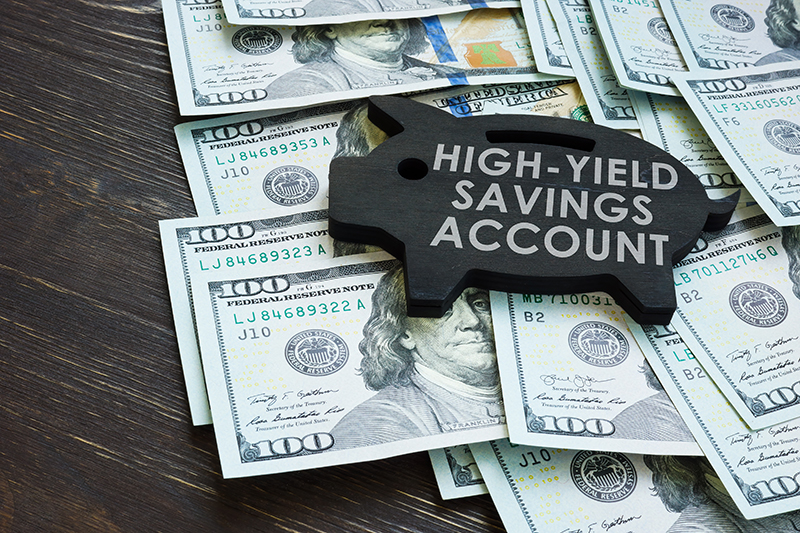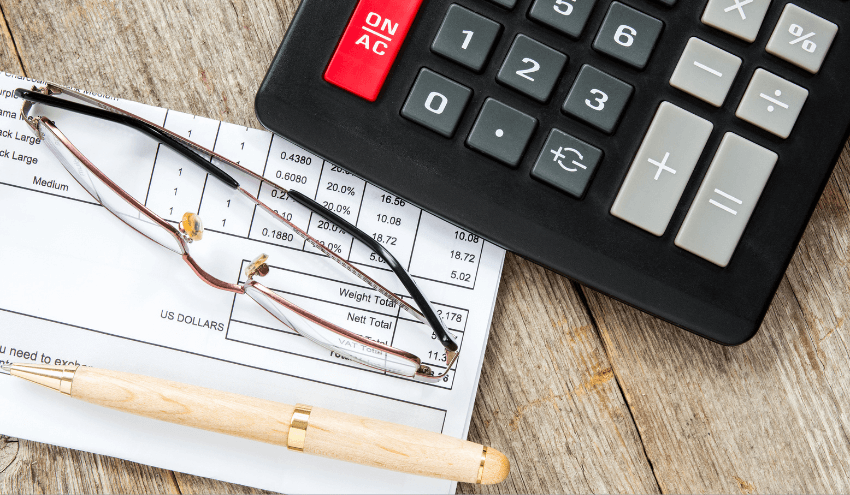A high-yield savings account is a bank account that will typically pay a higher interest rate than a standard savings account. The best high-yield savings accounts are frequently offered online, although they are not limited to internet-only banks. The concept behind high-yield savings accounts is that depositors are more willing to save if they can earn a significant amount of interest on their savings. Banks are willing to pay higher interest rates because the money is more stationary than normal savings or checking accounts.
The difference in interest rates can be radical. Top high-yield savings accounts can, at times, offer rates more than 10 times the average savings interest rate. Checking accounts can also be linked to high-yield savings accounts to make money transfers that much easier.
Pros of High-Yield Savings Account
High-yield savings accounts are great for many reasons. The most significant benefit is that you can receive a greater return on your investment while enjoying access to your money if you need it. High-yield accounts offer a higher yield, hence the name, on the money that is in your account. Money that would normally be stagnant in value (or lose value in periods of high inflation) can gain value if placed in the right account.
Higher APY
High-yield savings accounts often offer a higher APY (annual percent yield) than other deposit accounts. The higher the APY, the faster your money will grow, which provides you with a larger return in the same amount of time.
Lower fees
High-yield savings accounts are often offered by online banks. Because they have lower overhead expenses, these banks typically do not charge fees or charge much lower fees than traditional brick-and-mortar banks. Depending on your needs and use of the account, reduced or eliminated fees could result in significant cost savings for you.
Cons of High-Yield Savings Accounts
While high-yield accounts offer greater returns, they may not be a fit for every need. Depending on the purpose of your account and what you plan to do with the money in your account, some of these cons are less applicable. However, they are valuable to keep in mind when deciding whether a high-yield account is right for you.
Harder to spend
High-yield savings accounts may require you to withdraw or transfer your money in order to spend it. While there is no longer a federal regulation limiting the number of transfers or withdrawals each month, high-yield savings accounts typically do not provide check books or debit cards for making purchases. If you want to enjoy the benefits of a high-yield savings account while enjoying more payment options, it is best to use one in tandem with a checking account. That will allow you to periodically transfer money from your savings account to your checking account for easy and convenient spending.
Changing APY rates
The APY rate for high-yield saving accounts are not set in stone. The interest rates can increase or decrease at any time, though adjustments are typically not a daily or even weekly occurrence. Rate changes are based on several monetary and economic factors, and thus their frequency can be difficult to anticipate. The fluctuation in rates is largely dependent on the Federal Reserve. As its federal fund’s rate changes, bank and credit union APYs around the country often follow suit.
Best Uses For High-Yield Savings Accounts
Emergency funds
The COVID-19 pandemic has demonstrated the ever-growing need to have an emergency fund to fall back on. During an economic crisis, having money in the bank may be the only thing that sees you through. If you have savings or a lump sum of money, you may choose to put it into a high-yield savings account. If you are worried about withdrawals, be sure to select a bank that will give you easy access to your money.
Short-term savings
If you have a financial goal in mind and are looking for a secure way to store and grow your money as you save, a high-yield savings account may be right for you. They are a great way to save up cash for short-term goals or needs. This may include, but is not limited to:
- Vacations
- Car
- Travel
- Events
Large purchases
A high-yield savings account can help with saving large sums of money for life’s more substantial purchases. The most common is a down payment on a home or property. Compound interest helps you reach your financial goals more quickly.

How to Find the Best High-Yield Savings Account
While APY is an important factor in choosing a high-yield savings account, there are numerous other factors to consider as well. TAB Bank has put together a list of consideration factors to help you choose the best savings account for you.
• Fees – Paying substantial fees for your banking service can significantly reduce the profit that comes from interest earnings. Look for banks that don’t have monthly fees for maintenance and services.
• Monthly Requirements – Many banks will require you to meet a monthly requirement to actually earn interest on your savings. The interest rates may also differ depending on how much money you have in your savings account. Make sure you read the fine print before assuming all perks apply to you. Double-check that you meet the requirements or find a bank with less strict qualifications.
• Convenience – The best interest rates are normally found at online banks. This is a great place to look, but ensure you know how to access funds when you need them.
• Customer service – This is a factor that is often overlooked but is one of the most important. Look for a variety of ways to contact the bank. The best banks will offer multiple services including online banking, email, and phone.
• Know the standard – According to the FDIC, the national average savings account in September 2023 paid 0.45 APY with large banks often offering lower than that. Know what you are comparing to in order to ensure you get the best deal.
The Difference Between High Yield Savings Accounts & Other Bank Accounts
Money Market Accounts
Similar to high-yield savings accounts, money market accounts are also FDIC insured and may offer higher interest rates than normal savings accounts.
The difference is that funds from money market accounts can often be withdrawn using a check book. It is important to note that money market account APYs are typically lower than that of a high-yield savings account.
Certificates of Deposit (CD)
The money in a CD account cannot be withdrawn until the predetermined maturity date of the account is reached. The money in a high-yield savings account can be withdrawn as needed.
The interest rates of certificates of deposit accounts do not fluctuate after opening, so if you know you will not need access to your deposit until it has reached maturity, this may be a good option.
Checking Accounts
Checking accounts are best for day-to-day transactions and are very easy to withdraw from. These accounts typically offer little to no interest, though some offer cashback rewards. It is recommended to pair a high-yield savings account with a checking account so funds can be transferred and withdrawn as needed.
How To Open A High-Yield Savings Account
TAB Bank High-Yield Savings Accounts
TAB Bank offers high-yield saving accounts that charge no monthly maintenance fees and have no minimum balance required for opening an account. However, there are a few requirements for opening an account, such as having a social security number and filling out the proper documentation. You can have full confidence when you bank with us, knowing that your deposits are FDIC-insured* and there is an online banking app for you to track and manage your money. We ensure that there are no balance caps or service fees, and we strive to provide some of the most competitive APY rates in the nation. Plus, with our daily compounded interest feature, your money will start growing from the first day you open the account.
FAQ
Is a high-yield savings account a good idea?
A high-yield savings account is an excellent strategy if you are looking to open or switch savings accounts as the money will grow faster than it would in a normal savings account due to having a higher APY. If you are looking to grow your long-term wealth, consider pairing your high-yield savings account with another investment strategy as sometimes the rate of inflation can surpass the APY of your account.
What’s the downside of a high-yield savings account?
Previously, the biggest downside with high-yield savings accounts (like other savings accounts) is that money would be less accessible than a checking account due to the 6-withdrawal limit. However, that governing regulation was suspended during the COVID-19 pandemic and is no longer a concern. You get to enjoy the benefits of a high-yield savings account without any restriction on frequency of access.
How does an online savings account work?
Some online savings accounts have to be connected to a checking account for easier withdrawal of money. This means that it can be harder to access your cash, which may be good or bad depending on your intended use of the funds in your account. Many find it beneficial that their money is harder to access if they are trying to grow their savings, but it can be inconvenient in cases where an emergency withdrawal is needed. Before opening an account, you should learn what methods are available for accessing your money, and how long each would take.
Can you lose money with a high-yield savings account?
As long as you open your account at an FDIC-insured* bank, you face no risk of losing the principal balance. Interest and APY rates can change, which will affect the return you receive, but you will not find yourself losing money from a high-yield savings account.
Do you pay taxes on a high-yield savings account?
Any interest earned from a high-yield savings account will be taxed as ordinary income. You must report any and all interest that you receive when you file your annual tax return, but you will not have to pay taxes on the interest you earned if it is less than $10. Interest over $10 may be taxable.
How much money does a high-yield savings account make?
The amount of money a high-yield savings account makes is determined by the amount of money you add or withdraw, APY rates and adjustments, frequency of compounding, and other factors such as account fees, which can vary by institution. You should consider and compare as many of these elements as possible when deciding whether or where to open a high-yield savings account.
Disclaimers:
* The FDIC insures up to $250,000 per depositor, per account category, per institution. Any dollar amount above $250,00 per depositor, per account category, per institution is not insured. Learn more.



